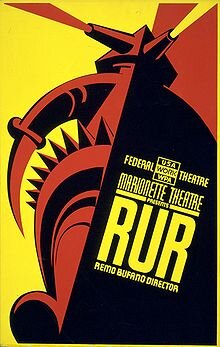10 made up words that (somehow) became real
Image via Pexels
One man’s bullshit is another man’s noun.
On that merit, I travelled around the internet collecting words which weren’t real until someone kept using them.
I also found some fab examples of appropriated foreign words which have been ruthlessly ‘Englishified’.
We’ve got a good mix of oldies and newies here, folks. Dive on in…
1) Unfriend
Fresh from the Facebook age Millennial dictionary, the verb ‘unfriend’ refers to the process of removing a person from your social network.
You can also do it in real life by ghosting.
2) Nerd
Dr. Seuss has made up some fab nonsense words in his long career, but ‘nerd’ really caught on.
This noun first made an appearance in his book If I Ran the Zoo, and was used to describe a weird little critter.
Nowadays, this word is used to refer to someone who is loserly and bookish.
3) Bandit
We couldn’t have a list of made up words without featuring at least one Shakespearean gem! Dude was the king of word invention.
The word ‘Bandit’ made its debut in Henry VI and is thought to have been adapted/borrowed from the Italian word ‘bandetto’.
Although he’s credited with inventing dozens of our favourite words words, Will’s style usually involved taking a common noun or verb and adding a different spin on it or appropriating a foreign word and adapting it for English use.
I spose we can forgive him — dude was writing to some serious deadlines.
4) Nickname
How ironic that the word ‘nickname’ should be the nickname of another word!
It started life as the Middle English word combo ‘eke’ (addition) and ‘name’: eke-name.
It was misinterpreted over time and eventually morphed into ‘neke name’.
Then it morphed again into ‘nickname’.
Its meaning has never changed, but like the Artist Formerly Known as Prince, this word has repeatedly reinvented itself.
Image via Wikipedia
5) Chortle
Remember Lewis Carroll’s Jabberwocky poem from Alice Through the Looking Glass?
That was the world’s first introduction to the word ‘chortle’.
Until Carroll nonsensed it up from nowhere, this word didn’t exist.
It’s a shame ‘mimsy’, ‘beamish’, and ‘frabjous’ didn’t make the cut…
Image via Wikipedia
6) Robot
You didn’t see this one coming, did ya? Yeah…turns out ‘robot’ isn’t an OG word.
It was invented by playwright Karel Čapek and it comes from the Czech word ‘robotnik’, which roughly translates as ‘slave’.
It hit the English language in 1923 and has been a mainstay ever since!
7) Muggle
Yeah, boi. She’s in the Cambridge dictionary, so she’s a real word.
As you may know, J.K. Rowling invented this noun as part of her Harry Potter book series.
It refers to a person of non-magical ability but can be used in real-life scenarios to describe someone who isn’t awesome at a particular skill.
8) Malapropism
Image via Chariot Learning
My husband is king of the malaprops. He frequently puts all his ‘eggs in one boat’ or ‘levitates’ toward an idea and it’s truly brilliant.
‘Malapropism’ comes from Richard Brinsley Sheridan's 1775 play, The Rivals, and takes its name from the character Mrs. Malaprop, who has a humorous habit of mixing her words.
So many people are guilty of mixing their natural language, that the term ‘malaprop’ has been coined to describe it.
You might also hear people refer to this same flub as a ‘Dogberryism’. This is in reference to Shakespeare’s lovable character, Constable Dogberry, who spends most of Much Ado About Nothing messing his words.
9) Meme
We all knew this wasn’t a real word until recent years, but I bet you can’t guess who invented it.
Here’s a hint…it wasn’t the folk down at 4chan.
It was Richard Dawkins!
He used the term in his 1976 book The Selfish Gene to refer to ideas which spread from person to person as fundamental units of culture.
And just like that, our pal Ricky gets off a good one.
10) Scrobble
I just love this word. Feels like something a turkey would say.
The word ‘scrobble’ hails from the brain of writer John Masefield, who used it in his 1937 book, Box of Delights, as another word for kidnapping.
More recently, Last.fm commandeered the word to describe the process of using an algorithm to log a user’s song choices in order to make future recommendations.




